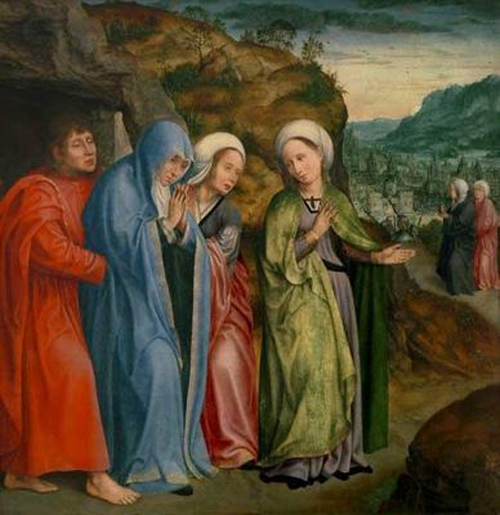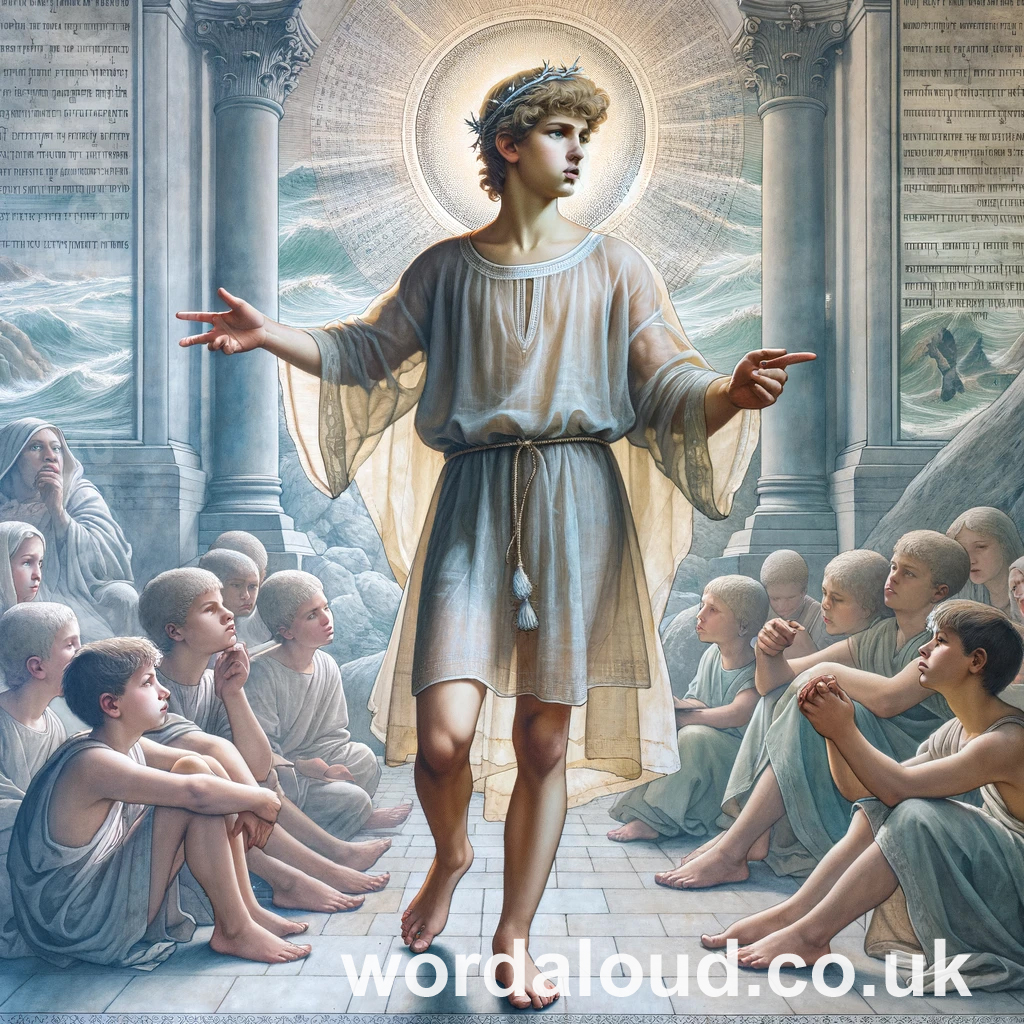Christian Art | Prayer With Jesus | Psalms | Joy Of Living In Zion | King David As A Boy | Audio KJV | Love Revealed By Jesus Christ | King James Audio Bible
Psalm 87 | King James Audio Bible
YouTube: Psalm 87 | KJV | King James Version | Audio Bible | Word Aloud
Psalm 87 expresses adoration and reverence for the city of Zion, as of its sacred foundation as the holy mountain. Attributed to the sons of Korah, this psalm begins by highlighting the exclusive and divine nature of Zion’s establishment.
The psalmist declares a special affection for the gates of Zion, elevating them above the dwellings of Jacob—a testament to the unique favour bestowed upon the holy city by the Lord. The refrain ‘Glorious things are spoken of thee, O city of God’ expresses admiration and awe inspired by Zion’s exalted status.
A feature of Psalm 87 is its inclusive vision of Zion’s citizenry. The psalmist mentions various distant regions, including Rahab, Babylon, Philistia, Tyre, and Ethiopia. These diverse places become, in a symbolic sense, connected to Zion, as individuals from these locations are counted as natives of the holy city. This inclusivity underscores a universal aspect of Zion’s significance, transcending geographical boundaries.
Anticipation of the highest authority establishing Zion further emphasizes the divine foundation of the city. It is portrayed as a place where people from various backgrounds are spiritually united, emphasizing a broader and more encompassing definition of Zion’s inhabitants.
The psalm concludes with a vivid image of singers and instrumental players gathering in Zion. The mention of ‘all my springs are in thee’ suggests that the source of spiritual vitality and abundance flows from the heart of this sacred city.

Psalm 87 | King James Audio Bible KJV | Love Revealed By Jesus Christ
His foundation is in the holy mountains.
The Lord loveth the gates of Zion more than all the dwellings of Jacob.
Glorious things are spoken of thee, O city of God. Selah.
I will make mention of Rahab and Babylon to them that know me: behold Philistia, and Tyre, with Ethiopia; this man was born there.
And of Zion it shall be said, This and that man was born in her: and the highest himself shall establish her.
The Lord shall count, when he writeth up the people, that this man was born there. Selah.
As well the singers as the players on instruments shall be there: all my springs are in thee.
Psalm 87 | King James Audio Bible KJV | Love Revealed By Jesus Christ
- Exaltation Of Zion: The psalm celebrates the unique and exalted status of the city of Zion, emphasizing its divine foundations in the holy mountains.
- Divine Favour: There is a profound acknowledgment of God’s special affection for Zion, as evidenced by the preference for its gates over the dwellings of Jacob.
- Glorious City Of God: The refrain ‘Glorious things are spoken of thee, O city of God’ underscores the admiration and reverence for Zion, portraying it as a city distinguished by divine favor.
- Inclusivity And Universality: Psalm 87 presents an inclusive vision of Zion’s citizenry, symbolically connecting individuals from distant regions like Rahab, Babylon, Philistia, Tyre, and Ethiopia to the city. This inclusivity transcends geographical boundaries, reflecting a universal aspect of Zion’s significance.
- Divine Establishment: The anticipation of the highest authority establishing Zion highlights the divine foundation of the city, suggesting a spiritual unity that goes beyond earthly foundations.
- Global Unity: The psalm envisions a spiritual unity in Zion, where individuals from diverse backgrounds are counted as natives, emphasizing a broader and more encompassing definition of Zion’s inhabitants.
- Spiritual Vitality: The imagery of singers and instrumental players gathering in Zion, coupled with the phrase ‘all my springs are in thee’, suggests that the city is a source of spiritual vitality and abundance.
- Divine Source of Life: The concluding image of Zion as the source of springs reinforces the idea that the spiritual richness and abundance of life flow from the heart of this sacred city.






